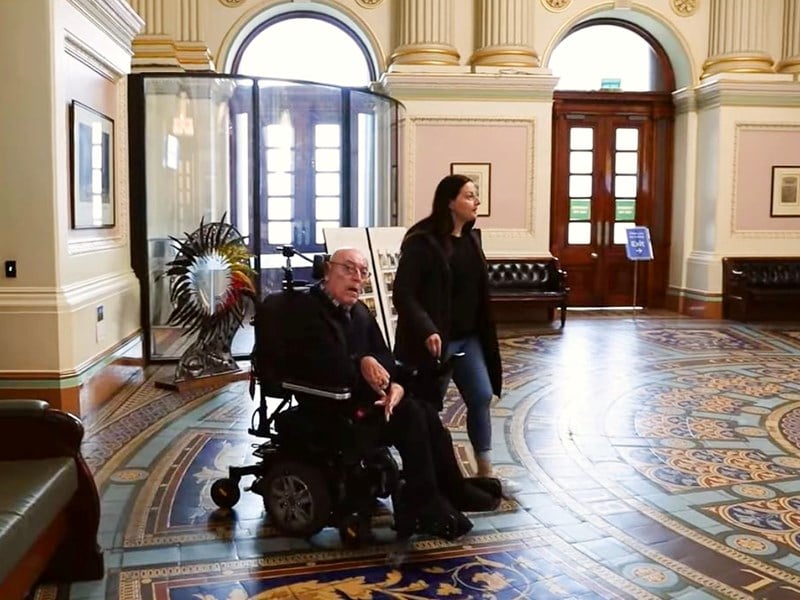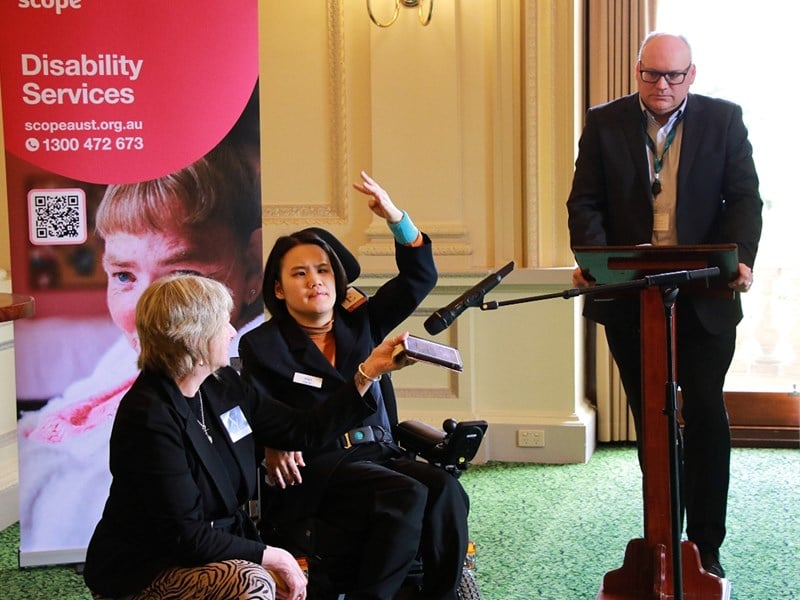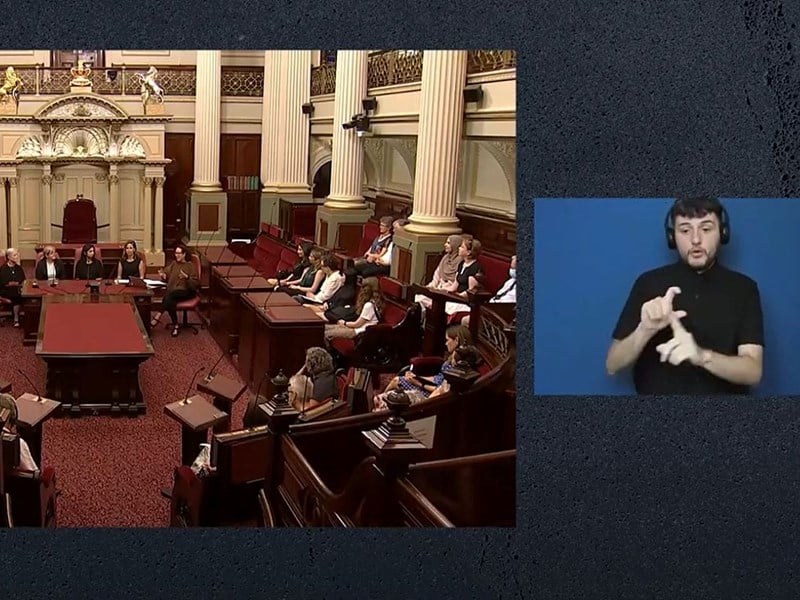Better access to boost inclusion
27 November 2024

An action plan to improve the accessibility of Parliament for people with disabilities is reaching a new stage of implementation, with significant measures achieved already.
Since its adoption in 2020, a working group of parliamentary staff overseeing the parliamentary departments’ Disability Action and Inclusion Plan (DAIP) has been steadfast in its commitment to ensure that ‘the Parliament’s facilities and activities are more accessible to people with disabilities’.
Customer service teams at the entrances to Parliament House have received Communication Access Accreditation, enabling them to effectively interact with visitors who may not be able to communicate verbally or in writing.
'The parliamentary departments’ commitment to creating communication accessible standards involved a number of stages which demonstrated a truly holistic communication inclusive approach,' said Denise West, General Manager CIRC National Services for Scope.
'The parliamentary departments’ commitment to becoming accredited is a testament to its vision to represent the opinions of the people of Victoria in a public forum and ensure that all Victorians, including those who experience communication barriers, can engage.'

An accessible entrance on Spring Street, near the Bali Gardens, has seen notable improvements.
‘We have installed better signage and procedures. Members and visitors using the entrance are now welcomed by staff rather than only communicated with through an intercom system,’ said Paul Groenewegen, Serjeant-at-Arms and Co-Chair of the DAIP working group.
A recent project by the Hansard broadcasting team has introduced closed captioning for all chamber proceedings being broadcast on Parliament's website.
‘Someone who is deaf or with auditory processing issues can watch the live stream from home and read the closed captions,’ said James Scott, Manager, Hansard and Broadcast and the other Co-Chair of the DAIP working group.
He noted that this move adds to the captioning of video content about parliament for social media that the community engagement team has had in place for several years.
In pursuit of constant improvement, an accessibility review of Parliament House was undertaken which resulted in a number of recommendations and while good progress has been made, further work remains to be done.
The success of the action plan hinges on ongoing collaboration and enthusiasm among various stakeholders. Monthly meetings, often involving an external reference panel, ensure that progress is continually assessed and momentum is maintained. Outcomes from these meetings are reported to MPs and staff on parliament’s intranet, fostering transparency and accountability.
Staff of all three parliamentary departments have actively participated in the DAIP's initiatives. Their willingness to be involved and their passion for the cause has been instrumental in achieving the plan's objectives.
‘They’ve all put their hand up to be part of it,’ remarked Paul Groenewegen, highlighting the collective commitment to accessibility and inclusion.
The external reference panel includes organisations such as Scope, the Australian Disability Network and the Disability Resource Unit. They provide invaluable insights informed by lived experience, helping to identify areas for improvement that might otherwise go unnoticed.
‘It is clear that the parliamentary departments are passionate about being inclusive for all and has implemented both short and long-term actions that will make a difference for those who have lived experience of disability,’ said Denise West.
‘We saw a great response to an accessibility survey that we developed, and valuable information gathered in collaboration with Parliament’s Electoral Matters Committee about the voting experience of individuals with disability in Victoria,’ she said.

‘Coming from that different perspective can give us an idea of what we need to achieve and also highlight areas for improvement that we perhaps may not be aware of,’ said James Scott.
Looking to the future, the DAIP working group is preparing to create the next iteration of the plan.
‘I’d love to see us accomplish more of those recommendations from our accessibility audit,’ Paul Groenewegen said.
Goals include attracting people with disabilities to work in the parliamentary departments and preparing the chambers, with their many steps and harsh angles, for members of parliament with disabilities.
‘We want to help staff feel more comfortable sharing their disabilities if they have one and how they can go about getting workplace adjustments,’ he said.
‘The challenge is to make sure we maintain that momentum because you're never going to finish it. No organisation is ever going to be perfect, but we just have to keep chipping away as much as we can.’
More information on the Disability Action and Inclusion Plan is available on the Parliament of Victoria website. The three parliamentary departments are: Department of the Legislative Assembly, Department of the Legislative Council, and Department of Parliamentary Services.
About the Author

Clara Yew
A participant in the Parliament Express program conducted by the Parliament of Victoria in partnership with Express Media. The program provided mentoring and engagement experiences, leading to a series of articles written by young Victorians for the Victorian Parliament's website.